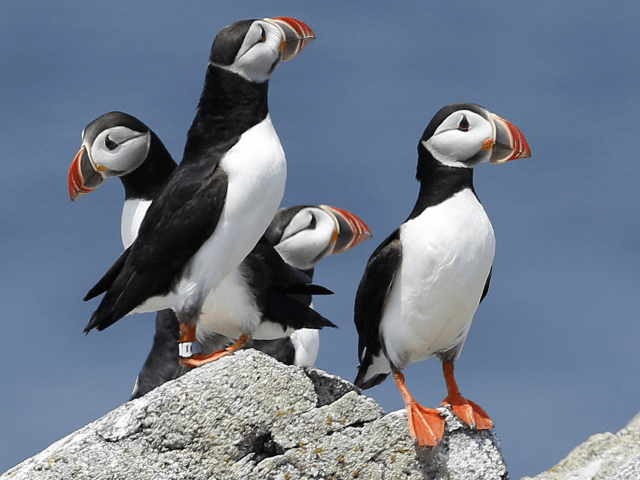The great thing about puffin stories is that they give you the perfect excuse to run a jolly picture of a puffin at the top. Everyone loves puffins, some – if you’re Icelandic – because they’re a tasty delicacy, others because, with their distinctive stripy beaks they look so attractive and charming and cute.
I expect this is why the Telegraph sent its science reporter up to the Farne Islands in Northumbria to write up a story it dramatically headlined ‘UK puffins may go the way of the dodo with fears of extinction in 50 years.’
It claimed:
So far the news has been bleak. The puffins arrived four weeks later than usual and initial estimates suggest the number of breeding pairs has fallen by 12 per cent.
A combination of climate change, overfishing, plastic pollution and extreme weather has left the little seabirds struggling for survival.
This was followed up by BBC Radio 4’s Today programme and also by the Daily Mail.
But the story is #fakenews.
First, as one reader pointed out, puffin colony numbers go up and down all the time.
Second, as Paul Homewood notes, all that stuff about “climate change, overfishing, plastic pollution and extreme weather” is just pabulum. It’s like a catechism that true believers are required to chant – a ritual demonstration of faith, not the thorough examination of facts that you might hope for from a responsible specialist reporter.
Yes, there seems to be evidence that industrial fishing of sandeels has had a deleterious impact on puffin colonies. But definitely not climate change.
If numbers rose from 3000 in 1939, to 55000 in 2003, when supposedly we have had global warming, how can it now be responsible for a decline?
Well indeed.
You might argue there’s no harm when the legacy media runs stories like this: all they’re trying to do is sex up a nice nature pic with a bit of attention-grabbing doom and gloom scribble underneath, and it all helps raise awareness of environmental issues.
But I’d disagree.
#Fakenews environmental crisis stories like this, repeated day in day out, have a cumulative impact in generating precisely the kind of mass hysteria which has led to the great climate change scare.
People feel in their bones that something needs to be done – and urgently – because why would newspapers and the BBC be running this stuff if it weren’t true and a real problem?
Politicians, in turn, feel compelled to respond to this apparent crisis. The resultant policies are invariably disastrous.


COMMENTS
Please let us know if you're having issues with commenting.